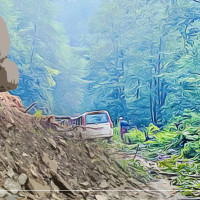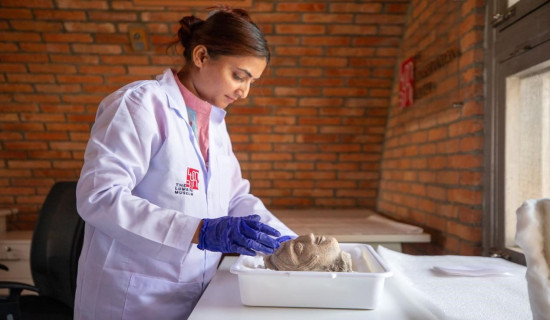- Saturday, 24 May 2025
Banke schools working for gene bank conservation
By Siraj Khan,Nepalgunj, Mar. 16: The prominent schools of Kohalpur, Banke, have taken active steps towards gene bank conservation.
Among the six types of gene banks existing in Nepal, Greenpeace Higher Secondary School, Gorkha United Public School, and Baljyoti School in Kohalpur are actively conserving indigenous flora and fauna within their school premises by establishing field gene banks.
Field gene bank is one of the techniques for the conservation of indigenous plant species. Baljyoti School has taken a leading role in safeguarding and promoting indigenous flora by establishing the gene bank.
Damodar Paudel, the school's principal, said that the field gene bank was established to conserve the environment, biodiversity and endangered plant species.
"Baljyoti School has established the field gene bank to educate students about indigenous plants so that students will learn to identify indigenous plants, their planting techniques and the benefits associated with their conservation," said Damodar Poudel, the principal of the school.
Similarly, Gorkha United Public School has set up the insects and bee field community gene bank with the aim of conserving endangered insect species.
With five species of bees and 30 beehives, alongside five different species of endangered insects housed within the gene bank, significant emphasis has been placed on their conservation, as well as that of other endangered species.
This focus has facilitated student research and comprehend the importance of insects in the ecosystem.
Likewise, Nepal's first community gene bank has been established in the Chisapani Gavar Valley of Banke.
Krishna Chaudhary, the founder of the bank, said that the bank was established to safeguard various species of bees and microscopic insects, as well as to preserve biodiversity.
Various types of bees and tiny insects have become endangered due to the destruction of their natural habitats coupled with modernisation. Even though it seems insignificant, protecting these insects under the gene bank will contribute positively to the environment.




-square-thumb.jpg)










-original-thumb.jpg)
